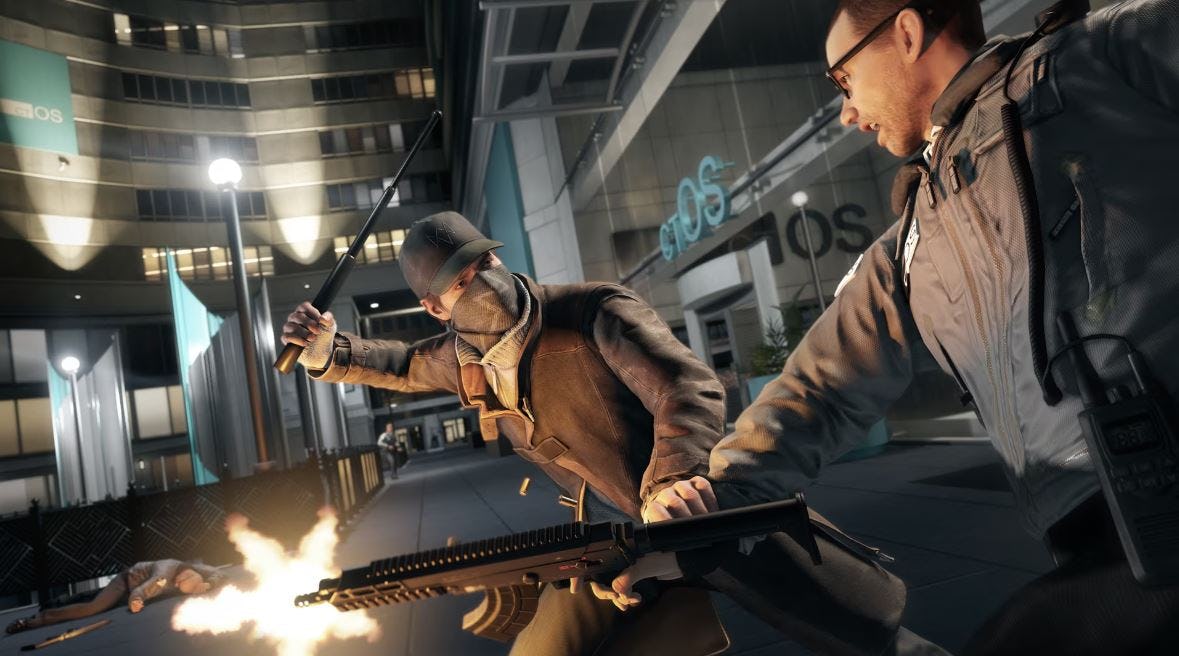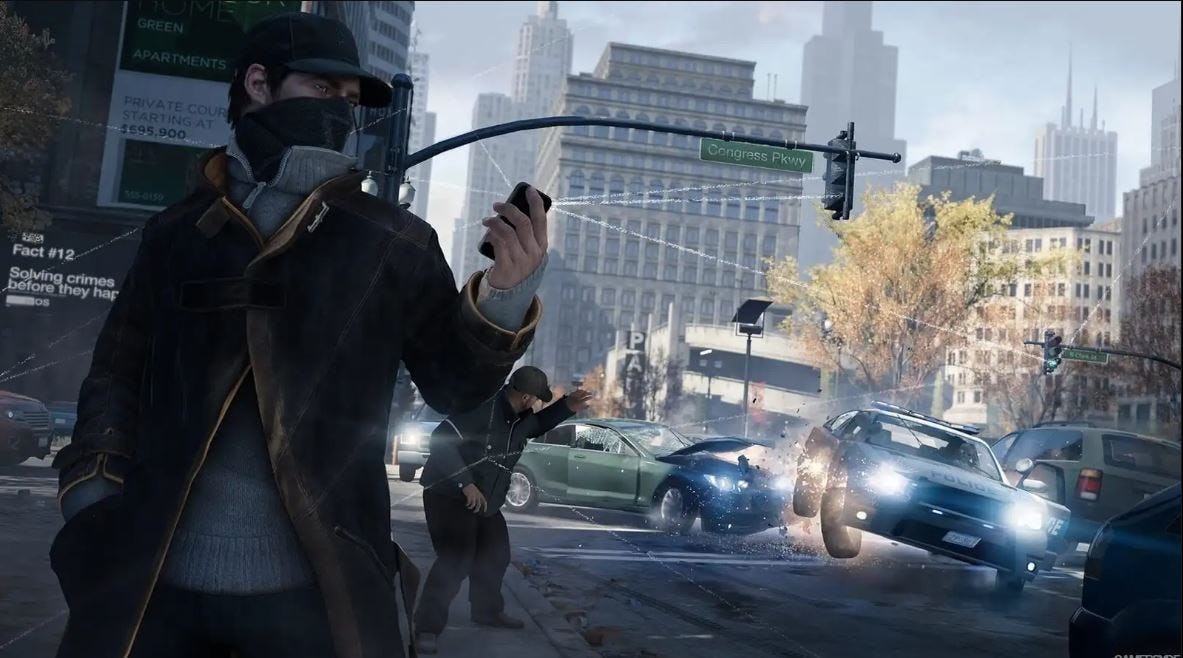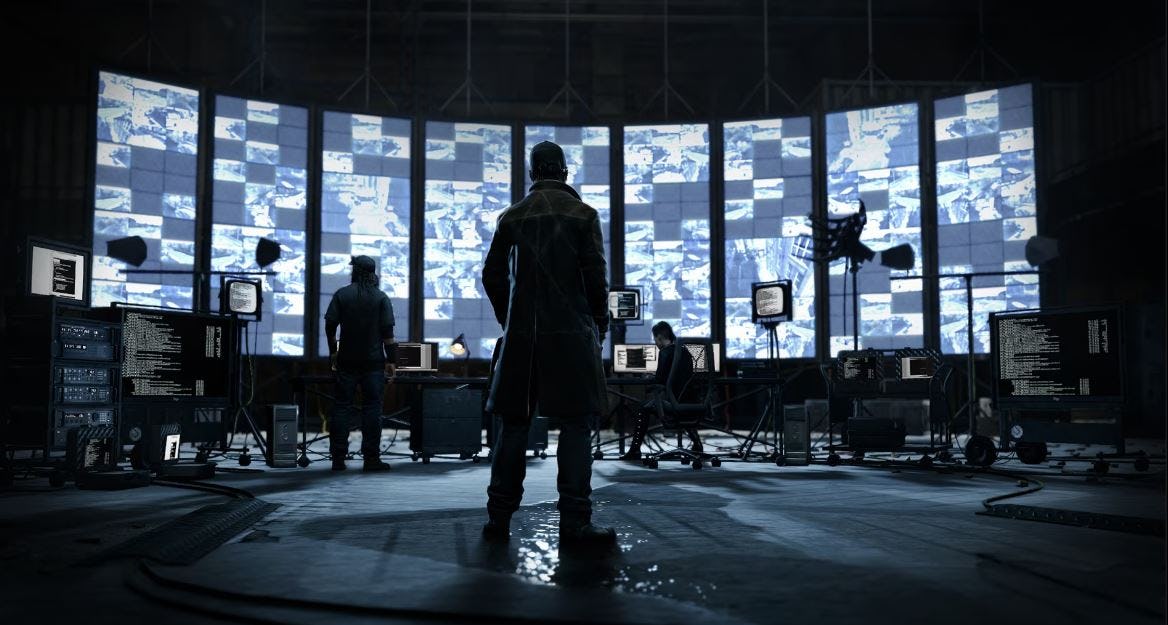
Releasing a video game is no easy feat. On the practical side, there’s mountains of production to be done. You need programmers and designers and producers to get the game to look and feel as good as it possibly can. Beyond that, you need compelling characters and story to hook players in and make them actually want to spend time in the digital world you’ve created. And even if everything goes to plan, which it rarely does, it might all be undone by bad marketing. Such was the case 10 years ago when Ubisoft launched its hacktivist action-adventure franchise Watch Dogs on May 26, 2014.
When it debuted at E3 2012, Watch Dogs looked like the kind of sleek, stylish action-adventure game that players were craving. The near-future dystopian Chicago came to life in gorgeous gameplay showcasing Aiden Pearce, a hacker hellbent on avenging his dead niece, dispensing vigilante justice. A central operating system called ctOS controls the city’s infrastructure, and Aiden has the tools and skills to tap into it, controlling the world around him with the push of a button.
But the game that launched in 2014 looked a lot different. Turns out the previews had been using souped-up PCs to maximize what gameplay could look like — if you had the right setup. The game that appeared on home consoles had noticeable downgrades, and a backlash ensued that had the potential to overshadow all the things Watch Dogs was doing right.
Watch Dogs began its life in 2009 at Ubisoft Montreal as a game called Nexus. What started as a 10 person team eventually ballooned into 1,000 people working on the game by the time it was released five years later. The company recognized the potential the game had thanks in large part to its unconventional spin on the open-world formula that dominated the gaming landscape at the time. It poured resources into meticulous research, even consulting with real-world hackers and cybersecurity firms like Kaspersky.
What sets Watch Dogs apart from other open-world games is its central gameplay mechanic. Unlike traditional action-adventure games that focus primarily on combat, Watch Dogs allows players to manipulate the environment and gather information through hacking. Using Aiden’s smartphone, players can access security cameras, control traffic lights, disrupt communications, and view personal information about NPCs. This mechanic adds a layer of strategy and immersion, encouraging players to think creatively about how to approach missions and challenges — rather than just shooting their way out of every crisis.

Hacking also adds a layer of humanity to what would otherwise be anonymous NPCs. Every single character has a profile Aiden can access that reveals personal details, bank information, and whether they’re statistically likely to commit a crime. Aiden isn't beyond consequences either. A reputation system determines the public’s reaction to him, and how quick they are to report him to police. While plenty of other games have had reputation systems in place, Watch Dogs was unique for the sheer scale of potential interactions the player faced.
It also didn’t shy away from serving a message alongside all its hackery. It delves into themes of privacy, security, and the ethical implications of a hyper-connected society. It raises questions about the balance between safety and freedom, the extent of NSA surveillance, and the vulnerability of personal data. By allowing players to access private information about NPCs, the game highlights the invasive potential of technology and challenges players to consider the consequences of their actions.
And it worked! In an interview with VentureBeat, the series’ Brand Content Director Thomas Geffroyd revealed that an internal survey done by Ubisoft showed nearly 60 percent of players reported having a different point of view regarding technology because of the themes in the game. Watch Dogs may have seemed comically dystopian to some when it launched 10 years ago, warning about the dangers an always-online populace poses for society. Now, it’s hard to find anyone in 2024 who thinks all this tech comes without big risks and high costs.

Despite the criticism regarding its initial graphical downgrades and performance issues, Watch Dogs received praise for its original gameplay mechanics and narrative depth. It sold millions of copies and spawned several sequels, each expanding on the core ideas of the original. Watch Dogs 2 introduced a more colorful and satirical take on the subject, while Watch Dogs: Legion further innovated with its concept of a playable collective of characters.
Watch Dogs was almost a victim of circumstance. The backlash it faced at launch was fueled by a collective outrage at the games industry as a whole, which had plenty of other big name titles pulling a bait and switch between the products demoed and the products sold. Ten years later, all that hardly seems to matter. The legacy of Watch Dogs is a game that took chances and delivered on its promise to warn us of a future where big tech rules all, even if we didn’t listen.







